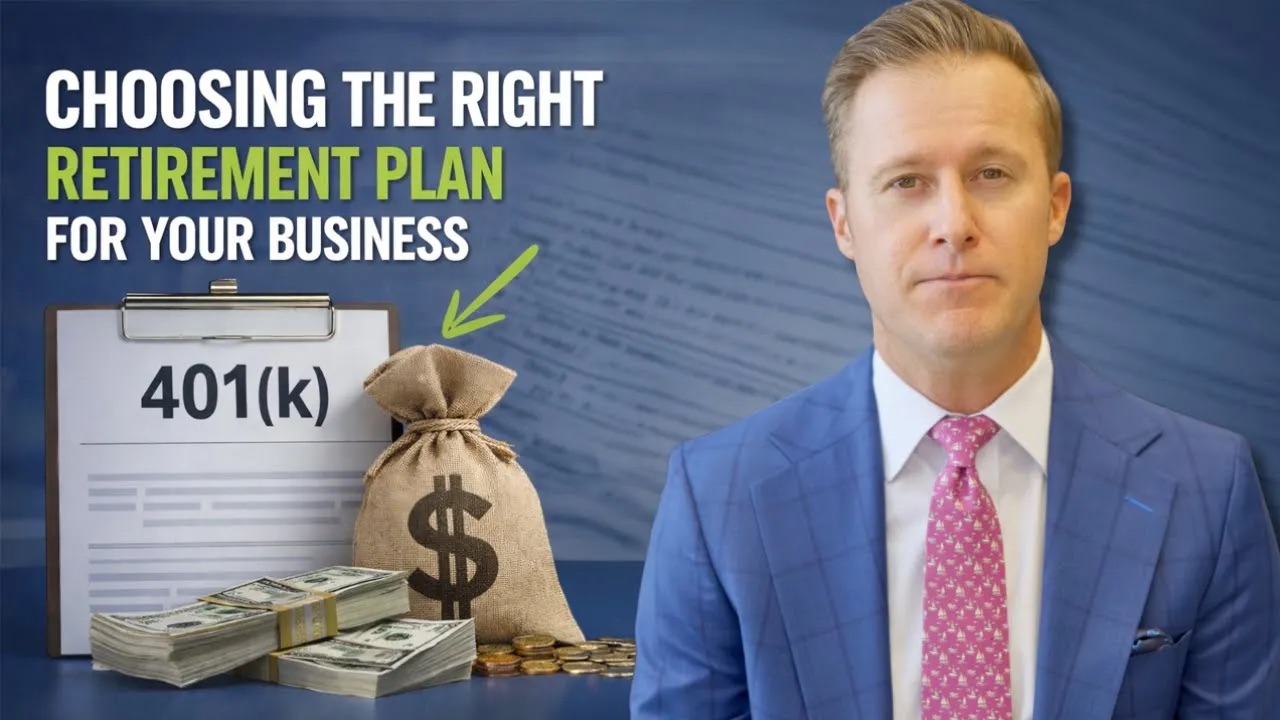It was November 1928, and Walt Disney was facing disaster. His groundbreaking creation, Oswald the Lucky Rabbit, had been swept away in a hostile takeover by his distributor, leaving him empty-handed and his young studio at risk. Staring down potential ruin, Disney and his brother, Roy, vowed never to lose control of their creations again. From that harsh lesson came Mickey Mouse—and a strategic commitment to protecting their ownership interests.
While your business may not involve cartoon mice or Hollywood drama, the principle remains timeless: securing the future of what you’ve built requires more than passion or talent. It takes clear agreements and proactive planning. That’s where a well-crafted Buy-Sell Agreement becomes indispensable, laying out exactly how ownership transitions occur when life throws its inevitable curveballs.
What is a Buy-Sell Agreement?
It’s essentially a legally binding buyout contract that dictates what happens to an owner’s share of the company if that owner leaves the business (due to death, disability, retirement, etc.). In other words, it predetermines who can buy a departing owner’s stake and at what price, ensuring a smooth transition rather than leaving those decisions to heirs or courts. For business owners, a well-crafted buy-sell agreement is crucial to protect both the business’s continuity and the owner’s personal wealth. Below, we break down the kinds of buy-sell agreements and a few key areas that can drastically affect your business succession plans – Tax Implications, Valuation Methods, and Funding Mechanisms – to help you structure an effective agreement.
Types of Buy-Sell Agreements
Buy-sell agreements come in several forms, each with distinct advantages depending on your business structure and goals.
Cross-purchase agreements
Cross-purchase agreements create a direct arrangement between owners themselves. When a triggering event occurs, each remaining business owner personally buys a portion of the departing owner’s interest, increasing their ownership percentages proportionally. The tax advantages here can be substantial – remaining owners receive a step-up in tax basis on the purchased shares, which reduces potential capital gains taxes down the road if they eventually sell.
Entity-Purchase Agreements
Entity-purchase agreements (also called redemption agreements) place the buyout obligation on the business itself. When an owner exits, the company uses corporate funds to purchase the interest and either retires the shares or holds them as treasury stock. All remaining owners are treated equally as their percentage ownership increases proportionally without requiring direct action on their part. However, the tax treatment isn’t as favorable. The remaining owners don’t receive that valuable step-up in basis, and C-corporations might face accumulated earnings tax concerns.
Hybrid Agreements
Hybrid agreements (sometimes called “wait-and-see” plans) blend both approaches to maximize flexibility. These agreements typically establish a right of first refusal that may start with the company having the first option to purchase some or all of the departing owner’s interest, followed by options for remaining owners to purchase any remaining shares. This structure adapts to circumstances at the time of the triggering event rather than locking in one approach years in advance. The primary advantage is flexibility to optimize for tax law changes, business financial health, and personal circumstances when an actual transfer becomes necessary.
Fair Value Received by Owner's Estate
Clear Path Forward for Remaining Owners
Owner's Family Receives Less Than Fair Value
Possible Business Failure or Dissolution
| Agreement Type | Cross-Purchase | Entity (Redemption) | Hybrid ("Wait-and-See") |
|---|---|---|---|
| Buyer | Co-owners directly | Company itself | Flexible (Co-owners or entity) |
| Complexity | Higher (multiple policies) | Lower (single policy per owner) | Moderate (varies by choice) |
| Tax Basis | Step-up for buyers | No step-up | Can optimize |
| Taxation | Favorable | Less favorable | Flexible depending on structure |
| Cash Flow | Owner-funded | Business-funded | Adaptable |
Valuation Methods in Buy-Sell Agreements
One of the most important parts of a buy-sell agreement is how the business is valued. The agreement should spell out a method to determine a purchase price that is fair to all parties. Common valuation approaches include using an independent appraisal, a formula, or a negotiated price, and each has pros and cons.
Independent Appraisal (Fair Market Value)
Many buy-sell agreements call for a professional business valuation when a trigger event occurs. An independent appraiser will look at the company’s financials, industry outlook, and other factors to determine fair market value – essentially, the price a willing buyer and seller would agree on.
This can involve techniques like a Discounted Cash Flow (DCF) analysis (projecting future cash flows and discounting them to present value) or comparing the business to industry multiples (valuation ratios of similar companies in the market). Appraisal-based valuations1 tend to be the most accurate and up-to-date because they consider the business’s current performance and market conditions.
Formula-Based Value (Book Value or Multiples)
Some agreements use a predefined formula to value the business. A classic example is book value, meaning the value of the company’s net assets as shown on the balance sheet. Other formulas use a multiple of earnings or revenue (for instance, 4× last year’s EBITDA or an average of several years’ profits). The appeal of a formula is that it’s simple and set in advance. However, formulas can become outdated or inaccurate over time. Business fortunes rise and fall, and a fixed formula might lead to over- or underpayment if the company’s performance has changed substantially1 since the formula was set.
Tax Implications
Estate Taxes
A buy-sell agreement can have a big impact on estate taxes when an owner passes away. If structured properly, it can fix the value of your business interest for estate tax purposes, which helps avoid surprises from the IRS. In fact, a well-drafted buy-sell can establish the value of the business for gift and estate tax purposes (if certain requirements are met)2, allowing your estate to plan ahead and reducing the risk 3 of nasty valuation disputes or IRS challenges during estate settlement.
However, it’s critical that the agreement’s pricing be fair and realistic. The IRS will only “respect” the agreed-upon price if it looks like a bona fide deal, not an attempt to undervalue the business for tax avoidance. If the price is set unreasonably low, the IRS can ignore it and assess a higher value, leading to a bigger estate tax bill for your heirs.
Capital Gains Considerations
Buy-sell agreements also affect capital gains taxes when an owner’s share is sold. If you sell your ownership stake during your lifetime (for example, you retire, and another owner or the company buys you out), any profit above your investment (basis) will typically be subject to capital gains tax. Fortunately, capital gains tax rates are generally lower than ordinary income rates, but it’s still a cost to plan for. On the other hand, if the transfer happens at death, your estate (or heirs) usually benefits from a step-up in basis.

Funding Mechanisms
Having a plan for how the buyout will be paid for is just as important as setting the price. Even a perfectly drafted buy-sell agreement can fall apart if nobody can come up with the cash to buy out the departing owner. High-net-worth business owners often have significant value tied up in the business, so a buyout could involve a large sum. Here are common funding mechanisms and how they work:
Life Insurance Funding (Cross-Purchase vs. Entity Purchase):
Life insurance is a popular and practical funding tool for buy-sell agreements, particularly to cover the scenario of an owner’s death. The concept is straightforward: you use insurance proceeds to provide the cash needed to buy out the deceased owner’s share, ensuring the surviving owners (or the company) aren’t financially strained. There are two main ways to set this up:
Cross-Purchase Agreement:
Each owner takes out a life insurance policy on each of the other owners. When one owner dies, the surviving co-owners receive the insurance payout and use those funds to buy the deceased owner’s shares4 from their estate. This approach directly funds the surviving owners’ purchase. One big benefit of a cross-purchase is tax basis: the surviving owners now own a larger share of the business, and their tax basis in those shares increases to the price they paid.
Another plus – life insurance payouts are generally income-tax-free, so the buyers don’t owe tax on the proceeds used for the purchase 2 The downside? If there are many co-owners, cross-purchase can get a bit complex (each owner needs policies on each of the others, which means lots of policies). There are workarounds (like a trusteed cross-purchase plan to centralize ownership of policies), but they require some administration.
Entity-Purchase (Redemption) Agreement:
Here, the business entity itself owns a life insurance policy on each owner5 (often paid for as a business expense). When an owner dies, the company receives the insurance death benefit 5 and then uses that money to redeem (buy back) the deceased owner’s shares. The result is that the remaining owners each indirectly own a larger percentage of the company (since the deceased owner’s shares are retired). The advantage of an entity redemption plan is simplicity – with the business as the only policy owner, you just need one policy per owner (no need for each owner to insure everyone else).
However, there are a couple of trade-offs to note. First, the surviving owners do not get a step-up in basis for the shares in this scenario – since they didn’t personally purchase additional shares (the company did), their original stock basis stays the same, which could mean more capital gains tax if they later sell their stock. Second, as discussed in the Tax Implications section, insurance-funded redemptions can have estate tax side effects. A recent court case confirmed that the insurance proceeds received by the company can increase the company’s value6 for estate tax calculations.
Despite these nuances, life insurance remains the go-to funding mechanism for most death-trigger buyouts because it provides liquidity exactly when it is needed.
Installment Payments
Not every buyout will (or can) be paid in one lump sum, especially if an owner retires or withdraws under circumstances other than death. In cases where life insurance isn’t available or enough – for instance, a planned retirement buyout or a disability departure – the agreement can allow the purchase price to be paid over time in installments. This means the buyer (either the remaining owner(s) or the company) will pay the selling owner or their estate in a series of payments (often with interest) rather than all at once.
Pros: Installment payments ease the immediate cash burden. The business or surviving owners don’t have to come up with millions overnight; they can use future profits or cash flow to fund the buyout over, say, 5 or 10 years. This can make an otherwise unaffordable buyout quite feasible.
Cons: You’re essentially extending credit to the buyer, which comes with some risks. There’s interest rate risk – you’ll need to set a reasonable interest rate for the payments, and if it’s pegged to something like the prime rate, changes in interest rates can affect the cost 3. There’s also cash flow risk3 – the buyer must maintain enough cash flow to keep up the payments, or the deal (and potentially the business) could flounder.
Sinking Funds and Other Funding Prep
Another strategy is for the business (or owners) to save up funds in advance for an eventual buyout. Sometimes called a sinking fund, this means the company sets aside money each year that is earmarked for future buy-sell obligations. Over time, this builds a war chest that can be used to buy out an owner. The obvious benefit is that when the time comes, the cash is on hand – no need for scrambling or loans. The downside is tying up capital – money sitting in a buy-sell reserve isn’t being reinvested into the business’s growth.
Besides an internal fund, businesses might arrange backup financing for buy-sell events. For instance, establishing a line of credit with a bank ahead of time can be wise – you don’t necessarily draw on it, but it’s available if needed to finance a buyout if insurance or cash reserves fall short. Banks may be more willing to extend credit before a crisis hits (e.g., while all owners are alive and business is stable) than afterward, so setting this up in advance can be part of your funding plan.
The ultimate goal is to help ensure liquidity – that when an owner needs to be bought out, there is a reliable source of cash to make it happen without jeopardizing the business. As a business owner, review your funding plan regularly: is the insurance coverage still adequate as the business value grows? Does the company need to save more, given an approaching retirement? Proactive planning here could prevent panic later.
In Conclusion
In summary, a buy-sell agreement is an essential tool for any high-net-worth business owner with a closely held company. It protects your business’s continuity and your family’s financial interests by pre-setting the rules of separation – who buys, how much, and how the money changes hands – when an owner exits. To get the most out of it, pay close attention to tax implications (so you don’t incur unnecessary estate or capital gains taxes), choose a sound valuation method (to keep the price fair), ensure funding is in place (so the agreement’s promises can actually be carried out), and integrate it fully with your personal estate and succession planning.
Unsure if your current buy-sell agreement fully aligns with your financial and legacy goals? Click below for a complimentary consultation—we’ll help you clarify your next steps and put a plan into motion that will give you and your family confidence and peace of mind.
Sources:
- https://www.mjcpa.com/business-owner-a-buy-sell-agreement-should-be-part-of-your-estate-plan
- https://fa-cpa.com/what-you-need-to-know-about-buy-sell-agreements
- https://riskresource.com/business-planning/buy-sell-agreements
- https://www.nerdwallet.com/article/insurance/life-insurance-small-business-owners
- https://www.investopedia.com/terms/b/buy-and-sell-agreement.asp
- https://www.withersworldwide.com/en-gb/insight/read/buy-sell-agreements-and-estate-tax-consequences-in-the-u












